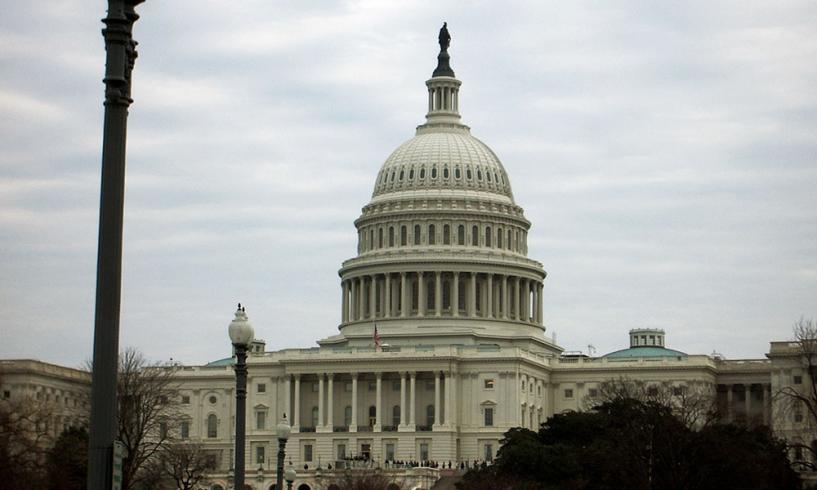The outcome of the 2016 presidential election will usher in a number of changes, as a new administration enters the White House for the first time in eight years. A large focus for both Republicans and Democrats will be on the healthcare industry and its accompanying details.
It’s no surprise that health funding issues will be central to the presidential discussions; however, other important health policy issues in the 2016 presidential election will include implementation and support of the Affordable Care Act, addressing palliative care, and the future of nursing workforce needs.
Investigating the Affordable Care Act
The Affordable Care Act (ACA) was signed into law on March 23, 2010, during President Obama’s first term (White House, 2016b). Dubbed “Obamacare” by the media, it brought forth a number of changes to the U.S. healthcare system to provide affordable care to all Americans. Moreover, preexisting conditions, which may have precluded individuals from accessing health insurance in the past, no longer factor against those seeking to qualify for health insurance. The ACA’s main tenets were to protect consumers against insurance company practices, provide affordable coverage, increase access to care, and strengthen Medicare.
Although the healthcare system in the United States is something that lawmakers are always adjusting and refining, ACA was a massive overhaul. Because large amounts of federal funding, and the taxes that most Americans pay, are used to address health care in the United States, it’s important to investigate the platform that each candidate supports when it comes to health care and the ACA. Does your candidate understand the changes that should be made to the ACA, and is he or she interested in hearing from nurses?
Championing the Importance of Palliative Care
Oncology nurses are well aware of the importance that palliative care plays in the spectrum of cancer treatment. It isn’t solely used in hospice care, and it should be supported throughout the cancer care continuum. ONS has been working as part of the Patient Quality of Life Coalition (PQLC) to inform policymakers, both in the House of Representatives and Senate, about the important function that palliative care plays in a patient’s experience.
By working together with goal-oriented organizations, the PQLC has championed the necessity of quality palliative care for patients. In June 2016, they held a lobby day in Washington, DC, where 64 advocates met with Congressional offices and gained 14 new cosponsors for a bill supporting the education and implementation of palliative care training. Because the president’s support is required to sign bills into laws, it’s important to know if your candidate and his or her party favors further palliative care education and implementation.
Supporting Increased Cancer-Related Funding
One Voice Against Cancer is a partnership in which ONS participates to encourage the federal government to increase funding and appropriations to cancer-related programs. In an ideal situation, more funding would lead to better cancer care, more focused research, and the ability to place the right tools in the hands of those who need them. Unfortunately, it’s not always considered a political priority when new bills are introduced.
Moreover, an important component of the National Cancer Moonshot Initiative is allocating federal funds for agencies such as the National Institute of Health and the National Cancer Institute. In 2016, both institutions’ budgets increased, which can offer funds to be used for research and discovery, preventative education, and novel ways to treat cancer. When examining your candidate’s issues, be sure to look at his or her party’s platform when it comes to funding federal health agencies.
Advocating for the Future of Nursing Needs
The U.S. nursing workforce comprises nearly 3 million employees, which is the largest group of workers in the healthcare industry. However, in the near future, we will see an increased demand for nearly 1.2 million nurses in the United States to care for the country’s aging baby boomers, according to the Bureau of Labor and Statistics. Current statistics show more Americans older than 65 than ever recorded in the United States. Additionally, the number of cancer survivors encompasses more than 14 million people as of 2016.
Presidential candidates should understand how critical it will be to support the education, training, and employment of nurses in the future. Moreover, increased funding for public health services is needed as the baby boomer population retires and relies on federally funded health services for treatment. Learn more about your candidate’s healthcare policies to see how he or she might handle the increased need and demand on the nursing workforce.
What the 2016 Presidential Election Means for the National Cancer Moonshot
In the months since the National Cancer Moonshot Initiative was announced at President Obama’s final State of the Union Address, Vice President Joe Biden and his Moonshot taskforce have been busy coordinating meetings, proposing increased healthcare funding, and working to break down barriers between the government, the private sector, and nonprofit oncology organizations. They’ve met with oncology leaders, including ONS Chief Executive Officer Brenda Nevidjon, RN, MSN, FAAN, and ONS President Susan Schneider, PhD, RN, AOCN®, FAAN, as they toured cancer research facilities around the country.
Because 2016 is a presidential election year, a new administration may mean change for the Cancer Moonshot. In an August announcement, Democratic presidential nominee Hillary Clinton said that she would continue the current Moonshot initiative. Her camp said they would be calling on Biden for his “advice, leadership, compassion, and sheer strength of will.”
The Republican National Committee declined to comment on its party’s platform regarding the Cancer Moonshot.






